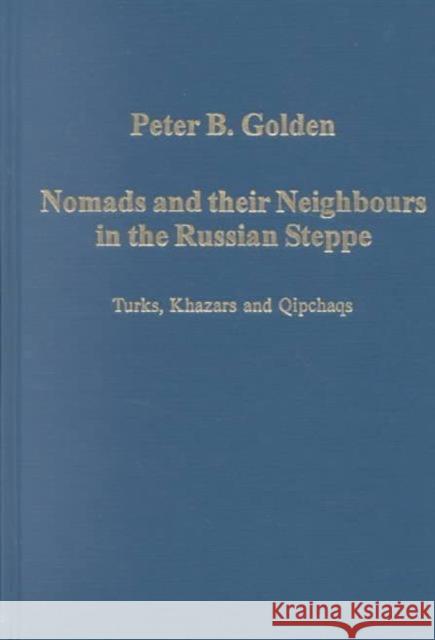Nomads and their Neighbours in the Russian Steppe : Turks, Khazars and Qipchaqs » książka
Nomads and their Neighbours in the Russian Steppe : Turks, Khazars and Qipchaqs
ISBN-13: 9780860788850 / Angielski / Twarda / 2003 / 384 str.
Nomads and their Neighbours in the Russian Steppe : Turks, Khazars and Qipchaqs
ISBN-13: 9780860788850 / Angielski / Twarda / 2003 / 384 str.
(netto: 669,47 VAT: 5%)
Najniższa cena z 30 dni: 654,86
ok. 22 dni roboczych
Bez gwarancji dostawy przed świętami
Darmowa dostawa!
The western steppelands of Central Eurasia, stretching from the Danube, through the modern Ukraine and southern Russia, to the Caspian, have historically been the meeting ground of Inner Asian pastoral nomads and the agrarian societies of Eastern Europe and the Caucasus. This volume deals, firstly, with the interaction of the nomads with their sedentary neighbours - the Kievan Rusa state and the medieval polities of Transcaucasia, Georgia in particular - in the period from the 6th century to the advent of the Mongols. Second, it looks at questions of nomadic ethnogenesis (Oghuz, Hungarian, Qipchaq), at the evolution of nomadic political traditions and the heritage of the Turk empire, and at aspects of indigenous nomadic religious traditions together with the impact of foreign religions on the nomads - notably the conversion of the Khazars to Judaism. A number of articles focus on the Qipchaqs, a powerful confederation of complex Inner Asian origins that played a crucial role in the history of Christian Eastern Europe and Transcaucasia and the Muslim world between the 11th and 13th centuries."











